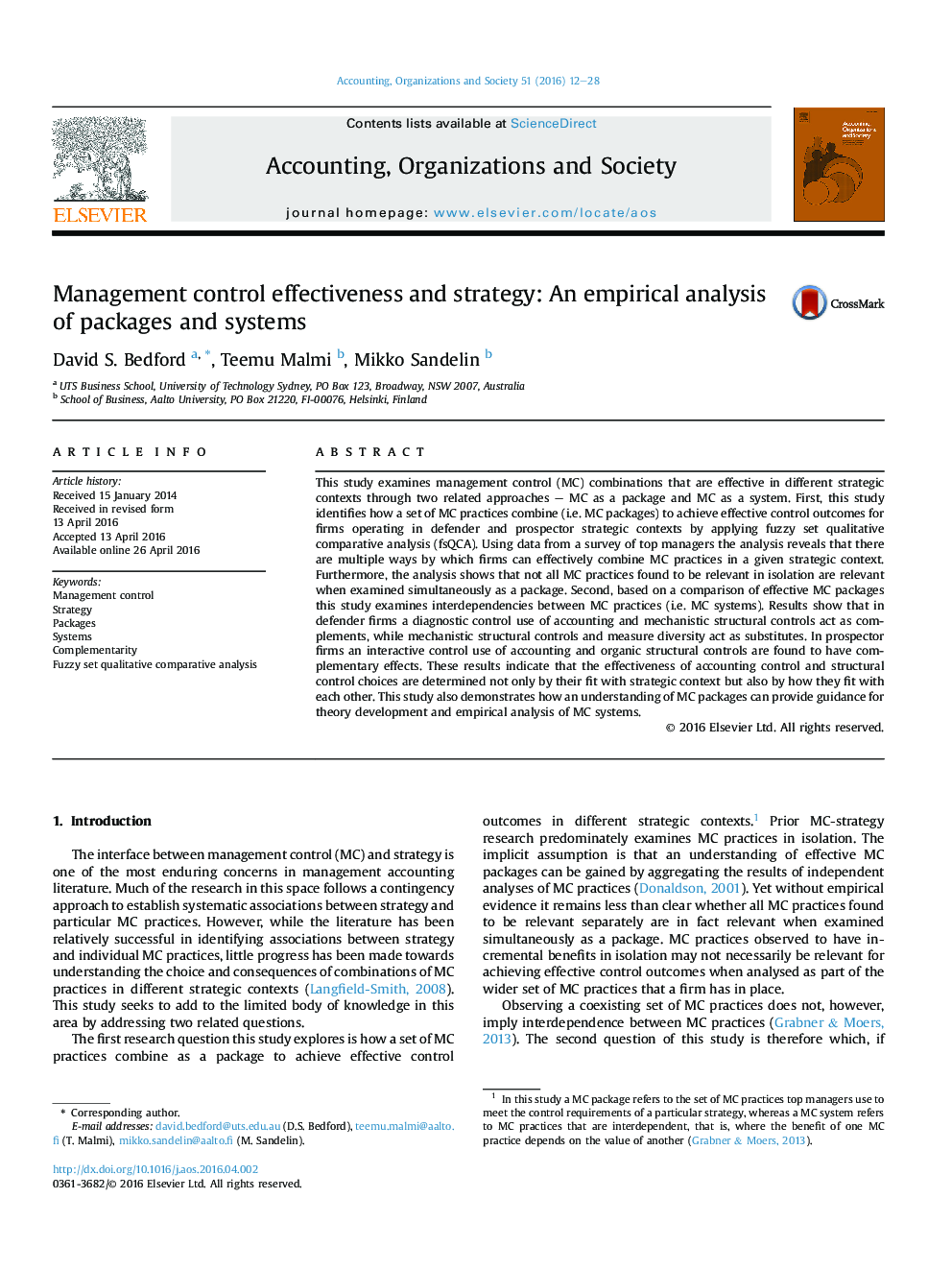| کد مقاله | کد نشریه | سال انتشار | مقاله انگلیسی | نسخه تمام متن |
|---|---|---|---|---|
| 878502 | 1471247 | 2016 | 17 صفحه PDF | دانلود رایگان |
This study examines management control (MC) combinations that are effective in different strategic contexts through two related approaches – MC as a package and MC as a system. First, this study identifies how a set of MC practices combine (i.e. MC packages) to achieve effective control outcomes for firms operating in defender and prospector strategic contexts by applying fuzzy set qualitative comparative analysis (fsQCA). Using data from a survey of top managers the analysis reveals that there are multiple ways by which firms can effectively combine MC practices in a given strategic context. Furthermore, the analysis shows that not all MC practices found to be relevant in isolation are relevant when examined simultaneously as a package. Second, based on a comparison of effective MC packages this study examines interdependencies between MC practices (i.e. MC systems). Results show that in defender firms a diagnostic control use of accounting and mechanistic structural controls act as complements, while mechanistic structural controls and measure diversity act as substitutes. In prospector firms an interactive control use of accounting and organic structural controls are found to have complementary effects. These results indicate that the effectiveness of accounting control and structural control choices are determined not only by their fit with strategic context but also by how they fit with each other. This study also demonstrates how an understanding of MC packages can provide guidance for theory development and empirical analysis of MC systems.
Journal: Accounting, Organizations and Society - Volume 51, May 2016, Pages 12–28
